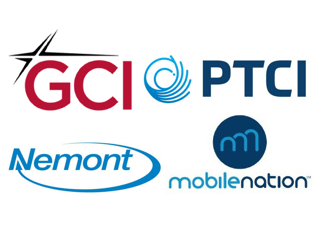Fort Myers, Fla.—Aug. 31, 2017— Interop Technologies™, a specialist in advanced communication networks and cloud-based managed services, today announced that it will enable four additional U.S. mobile operators to deploy Enhanced Wireless Emergency Alerts (eWEA) from the Interop Cloud™.
These operators include GCI in Alaska, MobileNation in Illinois, Nemont in North Dakota, and PTCI in Oklahoma. As a Federal Emergency Management Agency (FEMA) certified gateway host, Interop’s eWEA solution supports operators on CDMA, GSM, UMTS and LTE networks.
“We are truly alleviating the time and cost it would take to deploy and maintain an on-network WEA solution,” said John Bickford, Senior Vice President-Americas at Interop Technologies. “The resources and flexibility we provide operators allow them to advance their systems and keep current with the latest public safety improvements.” 
On Sept. 29, 2016, the Federal Communications Commission (FCC) approved a notice of proposed rule making to significantly improve the existing Wireless Emergency Alert (WEA) system. WEA compliance has been widely adopted among mobile operators to increase the safety of their subscribers.
“We’ve worked hard to continually advance our emergency alert solution so we can help operators meet the new FCC requirement deadlines and provide these important WEA enhancements to their subscribers,” said Nir Marciano, Product Manager at Interop Technologies. “These upgrades to our CMAS solution will comply with the deadlines outlined by the FCC ahead of schedule.”
The WEA enhancements outlined by the FCC include:
- Increase the maximum length of WEA messages (from 90 to 360 characters) for 4G LTE and future networks
- Require participating wireless providers to support inclusion of embedded phone numbers and URLs in all WEA alerts
- Require participating wireless providers to deliver the alerts to more specifically targeted geographic areas to avoid “over-alerting”
- Create a new class of alerts (“Public Safety Messages”) to convey essential, recommended actions that can save lives or property (e.g. emergency shelter locations or a boil water order)
- Require participating wireless providers to support transmission of Spanish-language alerts
- Make it easier for state and local authorities to test WEA, train personnel, and raise public awareness about the service.
The addition of a new class of alerts called “Public Safety Messages” is also defined in the FCC update. The new category will allow public safety officials to use the WEA system to send messages that convey essential, recommended actions that can save lives or property.
Earlier this month, Interop Technologies announced the deployment of their eWEA solution for Bluegrass Cellular in Kentucky.




